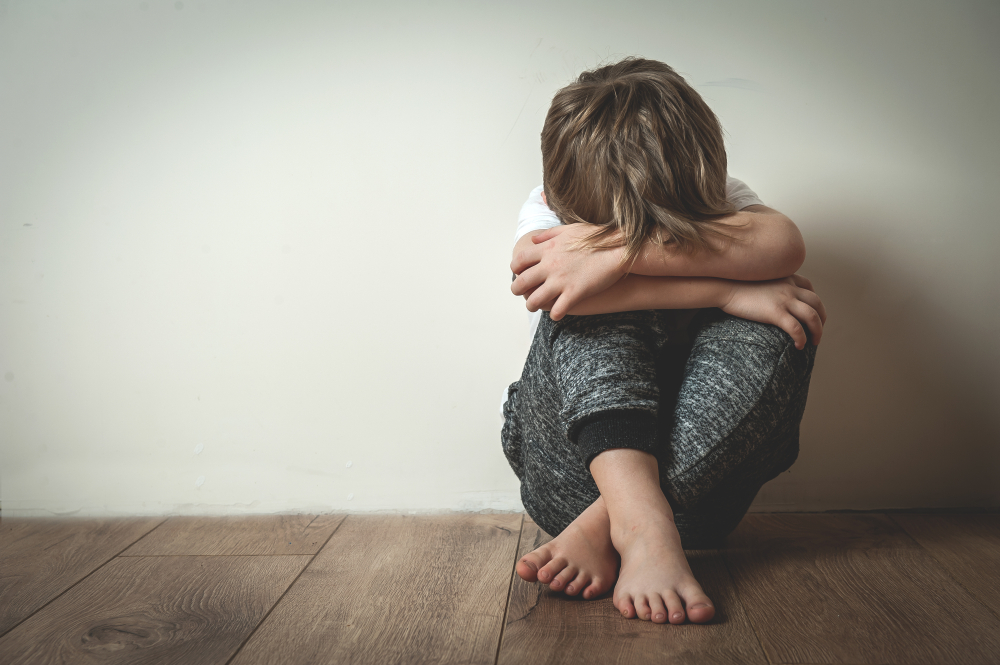Can I Hit My Child?
Question
My child used to bite or pull others’ hair out of frustration or wanted something when she was a toddler. Others would tell me to smack her (hit her gently) so she would listen, but I feel like usually smacking damages a child emotionally. Mainly because she was just a toddler, and they were not big things or haram things.
My question is, is hitting or smacking children permissible in Islam? What would the Prophet Muhammad (peace be upon him) have done.
Answer
In the Name of Allah, the Most Merciful and Compassionate. May Allah guide us to that which pleases Him, forgive us for our shortcomings, and alleviate our difficulties, Amin.
The Sunna (specifically the personal practice) of the Prophet (Allah bless him and give him peace) is never to hit to discipline. Abuse, in all its forms, is impermissible.
Furthermore, causing any physical harm, beating, hitting out of anger, and other forms of abuse are not allowed in Islam. There are many effective forms of disciplining that don’t involve causing physical harm and thus appear to be closer to the Sunna. Lastly, most, if not all, countries have laws concerning corporal punishment, and when a country’s secular laws are aligned with Islam’s, Muslims should abide by them, and Allah knows best.
Child Abuse
First, child abuse is unequivocally impermissible, and Allah knows best. Islam teaches us to be merciful to children.
The Messenger of Allah (may Allah bless him and give him peace) said, “Whoever does not show mercy to our young ones, or acknowledge the rights of our elders, is not one of us.” [Ahmad]
Allah’s Messenger (may Allah bless him and give him peace) kissed his grandson, Hasan Ibn ‘Ali (Allah be pleased with him) while Aqra` Ibn Habis At-Tamimi was sitting with him. Al-Aqra‘ said, “I have ten children and have never kissed one of them.” The Prophet cast a look at him and said, “Whoever is not merciful to others will not be treated mercifully.” [Bukhari]
What would the Prophet (Allah bless him and give him peace) do?
To further elaborate, the Prophet (may Allah bless him and give him peace) did not hit children. The Prophet (Allah bless him and give him peace) never raised his hands to hit anyone, except in combat.
‘Aisha reported: The Messenger of Allah (Allah bless him and give him peace) never struck anything with his hand, neither a woman nor a servant unless he was fighting in the way of Allah. [Muslim]
Age for Disciplining
As regards disciplining our children, this depends on the child’s age. For the most important physical act of worship, i.e., the prayer, the Prophet (peace be upon him) mentioned the age of ten.
The Messenger of Allah Allah bless him and give him peace) said: “Command your children to pray when they become seven years old, and give them hiding for it (non-performance of prayer) when they become ten years old; and arrange their beds (to sleep) separately. [Abu Dawud]
When the child reaches the above age, it is permissible to discipline them physically, but without hitting him violently, abusively, or causing injury and marks. The above should be the last resort and should never occur when the parent is angry or as revenge.
Strict Rules for Acceptable Disciplining
Legitimate disciplining has strict rules. For example, it is not permissible to hit somebody’s face as the Prophet (Allah bless him and give him peace) said: “If anyone among yours hits someone, he has to avoid hitting the face, and should not say, ‘may Allah turn your face ugly’….” [Ahmad and others]
It is not permissible to physically discipline the child except for the wali [guardian], such as the father or grandfather. Similarly, the mother or a wasi [authorised agent] is someone to whom the guardian entrusts the child for guardianship. And the qayyim [caregiver], who is someone charged by a judge to guard the child when the wali is lost and if the wali never charged someone to be the child’s wasi.
It is permissible for these people to physically discipline for reasons of [ the child’s] learning and bad manners even if these don’t involve disobedience [Ibn Hajar, Tuhfat al-Muhtaj; Hashiyat al-Shirwani]
I pray this is of benefit and that Allah guides us all.
[Shaykh] Irshaad Sedick
Checked and Approved by Shaykh Faraz Rabbani
Shaykh Irshaad Sedick was raised in South Africa in a traditional Muslim family. He graduated from Dar al-Ulum al-Arabiyyah al-Islamiyyah in Strand, Western Cape, under the guidance of the late world-renowned scholar, Shaykh Taha Karaan.
Shaykh Irshaad received Ijaza from many luminaries of the Islamic world, including Shaykh Taha Karaan, Mawlana Yusuf Karaan, and Mawlana Abdul Hafeez Makki, among others.
He is the author of the text “The Musnad of Ahmad ibn Hanbal: A Hujjah or not?” He has served as the Director of the Discover Islam Centre and Al Jeem Foundation. For the last five years till present, he has served as the Khatib of Masjid Ar-Rashideen, Mowbray, Cape Town.
Shaykh Irshaad has thirteen years of teaching experience at some of the leading Islamic institutes in Cape Town). He is currently building an Islamic online learning and media platform called ‘Isnad Academy’ and pursuing his Master’s degree in the study of Islam at the University of Johannesburg. He has a keen interest in healthy living and fitness.
